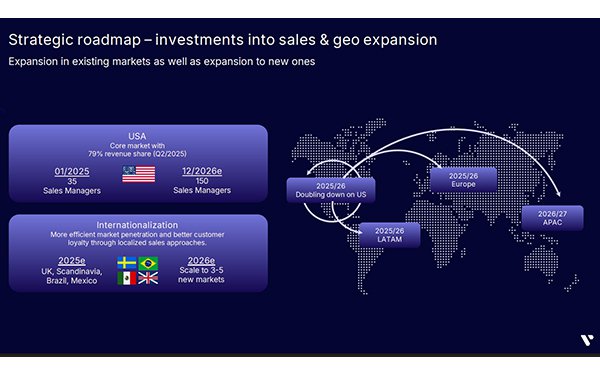
Captify’s search and intent data now belongs to the
Verve Group, which has a major focus on privacy in advertising.
The company acquired Captify Technologies for a total of €25.6 million.
The transaction, announced Wednesday, is
structured with a EUR 16.2 million cash consideration within six weeks of closing, and an additional deferred cash consideration of EUR 9.4 million 18 months after closing.
Captify has been
consolidated into Verve Group financials as of September 16, 2025.
“If someone is looking for a car, a house, or washing machine, you know they are interested in making a
purchase,” Remco Westermann, CEO at Verve Group, told MediaPost. “They have strong relations with agencies that really like their ways of targeting to deliver a better service for
advertisers.”
advertisement
advertisement
Cookies have a lot of "garbage" in the data, and many "discrepancies." One set of data can say the person is a male and the other a female for the same cookie. Cohorts
allow advertisers to target much more accurately without being intrusive to the user.
The company has become more privacy-centric, and that may be why 80% of its business comes from the United
States, although it has a major international presence.
When the Verve Group moved into programmatic advertising and expanded its media business six years ago, “we knew privacy had to
play a big role,” Westermann said.
Now it serves between 2 billion and 2.5 billion ads daily. The Captify acquisition will help the company meet the goals of its strategic
roadmap.
As the subject moved deeper into algorithms, Westermann made it clear that generative AI (GAI) models are “quite slow,” too slow to process ad serving, which is done with
supply-side platforms (SSP). They are more technical and require much faster speeds.
“We’ve been working with Google to see if there’s a faster way,” Westermann said,
referring to Google Cloud and deep-learning models. “To select targeting cohorts like a male between 30-to-35 years old, lives in the city and interested in sports, we use AI.”
When processing data for ad serving and ad targeting, traditional AI is generally faster than GAI, because
they are used for different types of tasks. The best speed often comes from using both types of AI for their respective strengths in one ad campaign.
With support from data, the company also plans to expand support for retail media, out-of-home, and audio and podcasts.
Verve Group began as a gaming publisher known as gamigo in 2012, and
developed its media business over several years. It was listed on the Frankfurt Stock Exchange initially as MGI - Media and Games Invest in 2018, where the media segment, which operated under the
Verve brand, grew significantly faster than its gaming business.
The company formally rebranded as Verve Group SE in 2024, reflecting its complete transformation into a global, ad-tech
media company.
Since this transition, the company has continued to build its programmatic advertising tools, with an emphasis on emerging channels like mobile in-app, CTV, and digital
out-of-home (DOOH).
"There's still a lot of potential in advertising based on ID-less targeting," he said, emphasizing the company mostly focuses on organic growth, but makes acquisitions to
speed progress.